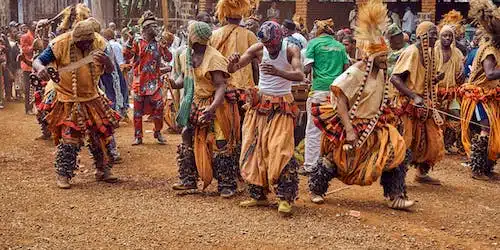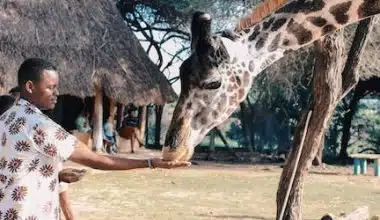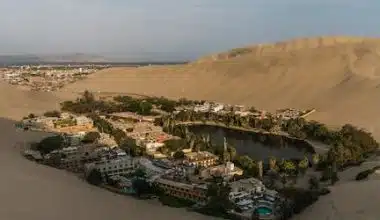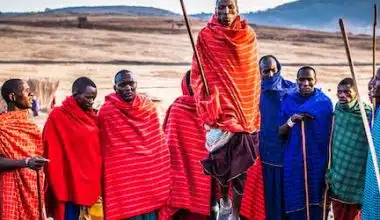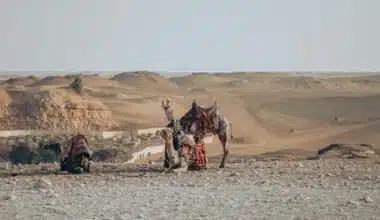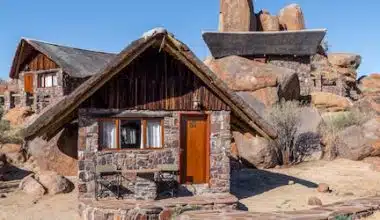Embark on a vibrant cultural odyssey and celebrate the diverse and dynamic festivals of Africa, where every celebration is a journey into the hearts of diverse cultures and traditions. Africa hosts numerous festivals to celebrate its diverse cultures and traditions. Notable festivals in Africa are listed in this writing, especially if you find it interesting to travel around Africa, enjoying rich cuisines, cultural heritage, traditions, and artistic expressions.
Festivals In Africa
Africa is a continent rich in diverse cultures and traditions, and it is home to a wide variety of festivals that celebrate these unique aspects of African heritage. The notable festivals in Africa include
#1. Timkat (Ethiopia)
Timkat is a three-day festival celebrated in January to commemorate the baptism of Christ. It is one of the most important religious festivals in Ethiopia.
#2. Cape Town International Jazz Festival (South Africa)
This annual music festival is held in Cape Town and features renowned jazz artists from around the world.
#3. Fez Festival of World Sacred Music (Morocco)
The Fez Festival is a week-long event that showcases sacred music from different cultures and traditions. It takes place in the city of Fez and attracts artists and visitors from around the globe.
#4. Zanzibar International Film Festival (Tanzania)
Also known as ZIFF, this film festival is held annually in Zanzibar and showcases African and international films. It is one of the largest cultural events in East Africa.
#5. Fespaco (Burkina Faso)
Fespaco, also known as the Pan African Film and Television Festival of Ouagadougou, is the largest film festival in Africa. It takes place biennially in Ouagadougou, Burkina Faso, and showcases films from across the continent.
#6. Lamu Cultural Festival (Kenya)
Held in the historic town of Lamu, this festival celebrates Swahili culture and traditions. It includes dhow races, traditional dances, and music performances.
#7. Durbar Festival (Nigeria)
The Durbar Festival is a colorful celebration held in several states in northern Nigeria, including Kano, Katsina, and Sokoto. It involves horse parades, traditional dances, and displays of martial arts.
#8. Lake of Stars Festival (Malawi)
This music festival takes place on the shores of Lake Malawi and features local and international artists. It is known for its stunning location and vibrant atmosphere.
#9. Agadez Cross Festival (Niger)
The Agadez Cross Festival is a cultural event held in Agadez, Niger. It celebrates the rich Tuareg heritage and includes traditional music, camel races, and storytelling.
#10. Meskel Festival (Ethiopia)
The Meskel Festival is celebrated in Ethiopia to commemorate the discovery of the True Cross by Queen Helena in the 4th century. It involves religious processions, bonfires, and traditional dances.
General Features of Festivals in Africa
Festivals in Africa showcase the rich cultural heritage, traditions, and artistic expressions of the continent. While each festival has its own unique characteristics, some general features can be observed across many African festivals:
#1. Cultural Celebrations
African festivals often serve as platforms to celebrate and promote diverse cultural traditions, including music, dance, art, storytelling, and cuisine. They provide an opportunity for communities to come together and express their cultural identity.
#2. Traditional Attire
The festivals in Africa are often marked by the vibrant display of traditional attire. Participants and performers dress in colorful and intricately designed clothing that represents their cultural heritage.
#3. Music and Dance
Music and dance are integral parts of African festivals. Traditional instruments, such as drums, xylophones, and flutes, are commonly used to create rhythmic and energetic music. Dance performances showcase various traditional styles and movements.
#4. Art and Craft Exhibitions
Many African festivals feature art and craft exhibitions, where local artisans display their creations. These can include traditional sculptures, paintings, beadwork, pottery, and textiles. It provides an opportunity for artists to showcase their skills and for visitors to appreciate and purchase unique artworks.
#5. Food and Cuisine
African festivals often offer a wide array of traditional food and cuisine. Local delicacies and dishes are prepared and shared, allowing visitors to experience the flavors and culinary traditions of different African cultures.
#6. Community Engagement
Festivals in Africa are community-oriented events that foster a sense of togetherness and unity. They provide a platform for people to connect, socialize, and strengthen community bonds.
#7. Education and Cultural Exchange
Many African festivals aim to educate visitors about the cultural significance and history behind the celebrations. Workshops, seminars, and exhibitions are often organized to promote cultural understanding and exchange.
#8. Tourism and Economic Impact
Festivals in Africa attract both local and international visitors, contributing to the local economy through tourism. They can stimulate economic activities, such as hospitality, transportation, and local businesses.
#9. Film Festivals
Africa hosts several significant film festivals that showcase African and international cinema. Examples include the Cairo International Film Festival in Egypt, the Carthage Film Festival in Tunisia (the oldest festival in Africa and the Arab world), and the Durban International Film Festival in South Africa.
#10. Historical and Religious Significance
Some festivals in Africa have historical or religious significance. They commemorate important events, honor ancestors, or celebrate religious traditions. These festivals often involve rituals, processions, and ceremonies that are deeply rooted in cultural and spiritual beliefs.
Significance and Benefits of the Festival in Africa
Festivals in Africa hold significant importance and offer various benefits to communities and individuals.
#1. Preservation of Cultural Heritage
Festivals play a crucial role in preserving and promoting African cultural heritage. They provide a platform for communities to showcase their traditional music, dance, art, crafts, and rituals, ensuring the transmission of cultural knowledge from one generation to the next.
#2. Community Cohesion and Pride
Festivals bring communities together, fostering a sense of unity, belonging, and social cohesion. They provide an opportunity for people to reconnect with their roots, strengthen community bonds, and reinforce shared values and traditions. Festivals also foster community pride by showcasing and celebrating cultural uniqueness.
#3. Economic Impact
Festivals contribute to the local economy through tourism-related activities. They attract local and international visitors, who spend money on accommodation, food, transportation, and local products. Festivals also provide free marketing and advertising for local businesses, creating economic ripples throughout the community.
#4. Tourism Promotion
Festivals serve as platforms to showcase African heritage and culture, attracting tourists from around the world. They contribute to the growth of the tourism industry, create employment opportunities, and stimulate economic activities in the host regions.
#5. Education and Cultural Exchange
Festivals provide educational opportunities for visitors to learn about different African cultures, traditions, and histories. They promote cultural understanding, tolerance, and appreciation, fostering cross-cultural dialogue and exchange. Festivals also offer workshops, seminars, and exhibitions to promote cultural education.
#6. Strengthening Relationships
Festivals strengthen relationships within communities. They involve the participation of various community members, fostering social connections, and creating a sense of togetherness. Festivals provide a platform for individuals to engage with each other, share experiences, and build lasting relationships.
#7. Promotion of Health and Well-being
Some festivals incorporate physical activities, such as dance and sports, promoting a healthy and active lifestyle. They encourage community members to engage in physical activities, fostering overall well-being.
#8. Celebration and Gratitude
Festivals are occasions for celebration, expressing gratitude, and giving thanks. They provide an opportunity for communities to come together and express appreciation to deities, ancestors, or the divine for blessings, guidance, and protection.
#9. Development and Planning
Festivals often serve as occasions for communities to plan and discuss developmental projects. They bring together community members, leaders, and government officials, creating a platform for dialogue and collaboration.
#10. Expression of Identity
Festivals allow African communities to express their unique cultural identity and take pride in their heritage. They provide a space for individuals to showcase their talents, creativity, and traditional attire, reinforcing a sense of cultural pride and self-worth.
Tips When Planning a Trip to a Festival in Africa
Attending festivals in Africa can be an exciting and enriching experience. Here are some tips to make the most of your festival experience
#1. Research the Festival
Before attending a festival, research its dates, location, and the specific activities and events taking place. Understand the cultural significance and traditions associated with the festival to fully appreciate and respect the customs.
#2. Plan
Make travel arrangements, including accommodation and transportation, well in advance. Some festivals attract large crowds, so booking early ensures you have a place to stay and convenient transportation options.
#3. Pack Appropriately
Consider the climate and terrain of the festival location when packing. Bring comfortable clothing, including traditional attire if desired, as well as sunscreen, insect repellent, and any necessary medications. Don’t forget to bring a reusable water bottle to stay hydrated.
#4. Respect Local Customs
Familiarize yourself with the local customs and traditions of the festival. Respect cultural norms, dress modestly if required, and follow any guidelines or rules set by the organizers.
#5. Engage with the Community
Festivals provide an opportunity to interact with locals and immerse yourself in the culture. Engage in conversations, learn about local traditions, and be open to new experiences. Respect personal space and ask for permission before taking photographs of individuals or cultural displays.
#6. Try Local Cuisine
Explore the diverse culinary offerings at the festival. Sample traditional dishes and street food to experience the local flavors and culinary traditions. Be mindful of any dietary restrictions or allergies.
#7. Stay Safe
Ensure your safety by being aware of your surroundings and taking the necessary precautions. Keep your belongings secure, and be cautious of pickpockets in crowded areas. Follow any safety instructions provided by festival organizers.
#8. Be Open to New Experiences
Embrace the spirit of the festival and be open to new experiences. Participate in dance workshops, art exhibitions, and cultural performances. Engage with the local music, dance, and art forms to fully immerse yourself in the festival atmosphere.
#9. Respect the Environment
Practice responsible tourism by respecting the environment and leaving no trace. Dispose of waste properly and follow any eco-friendly guidelines set by the festival organizers.
#10. Make Connections
Festivals are a great opportunity to meet new people and make connections. Engage in conversations, make friends, and learn from the diverse perspectives of fellow festivalgoers.
What Is Celebrated In Africa?
Africa celebrates a variety of events and occasions that hold cultural, historical, and social importance. These include Africa Day, harvest festivals, Kwanzaa, Women’s Day, independence days, cultural festivals, religious festivals, and historical commemorations. These celebrations allow Africans to honor their heritage, express gratitude, showcase cultural diversity, and commemorate important milestones in African history. Each event and occasion contributes to the vibrant tapestry of African traditions, customs, and celebrations.
What Is a Festival in African Traditional Religion?
In African traditional religion, festivals are significant events that honor divinities or cultural heroes and renew the bonds between ancestors and their progeny. These festivals often involve rituals, music, dance, storytelling, and communal feasting. They serve as occasions for spiritual renewal, healing, and connection with the divine and ancestors. Festivals in African traditional religion are deeply rooted in the cultural identity of the community and are passed down through generations via oral traditions. They play a vital role in preserving and transmitting cultural values, traditions, and beliefs.
How Many Festivals Are In Nigeria?
Nigeria is known for its rich and diverse array of festivals. While the exact number may vary, it is estimated that there are more than 365 festivals in Nigeria. These festivals encompass a wide range of cultural, religious, and traditional celebrations that are unique to Nigeria’s ethnically and culturally diverse society. Some notable festivals include the Argungu Fishing Festival, Calabar Carnival, Ojude Oba Festival, Durbar Festival, Osun-Osogbo Festival, and Iwa-akwa Festival. Each festival holds cultural, historical, and spiritual significance and contributes to the vibrant tapestry of Nigerian traditions and customs.
What Is The Biggest And Most Famous Festival?
The biggest and most famous festival in the world is the Carnival in Rio de Janeiro, Brazil. It is widely regarded as the greatest show on Earth and attracts nearly 5 million people each year, with a half-million or so visitors traveling to see the spectacle. Carnival is a vibrant and wild party that takes place over the five days preceding the Catholic season of Lent, which starts 40 days before Easter. It features elaborate parades, colorful costumes, samba music, dance performances, and street parties. The festival has historical and religious roots but has evolved into a massive celebration of Brazilian culture and identity.
What Is the Biggest Religion in Africa?
The biggest religion in Africa is Christianity. Christians are expected to remain the largest religious group in sub-Saharan Africa, with their numbers growing from 517 million in 2010 to over 1.1 billion in 2050. Christianity has a significant presence across the continent, with a diverse range of denominations and traditions.
Conclusion
Festivals in Africa are crucial for preserving and promoting African cultural heritage, fostering community unity, economic impact, tourism promotion, and education. They showcase traditional arts, crafts, and rituals, transmit cultural knowledge, and promote cultural understanding, tolerance, and appreciation. They also stimulate cross-cultural dialogue. Research dates, locations, and activities respect cultural norms, engage with the community, and be mindful of dietary restrictions.
- MEXICAN FESTIVALS
- CHILE HOLIDAYS: All You Need To Know
- IS KENYA SAFE? Everything You Need To Know
- IS MAURITIUS SAFE? All You Need To Know
- CHRISTMAS IN AFRICA: A Symphony of Cultures, Traditions, and Joy
